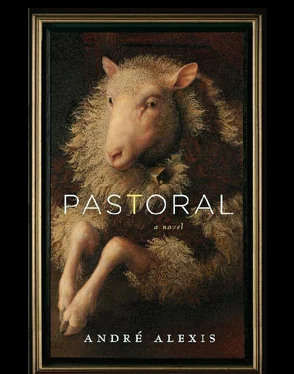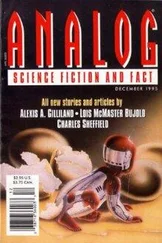— Vous voulez coucher avec toi?
He then put his hand on her thigh and moved as if to sidle up beside her and give her a hug. It was as if she had been bitten by a snake. She jumped up from the chesterfield on which they were sitting and cried out
— Don’t touch me!
Robbie stood up, palms out, and apologized, confused that his effort to give comfort had gone so far astray. But the very look of him was a provocation to her. She had (she was convinced) only ever felt anything for him because his body was all muscle and perfect. (The words ‘first love’ didn’t occur to her at this moment.) Now that the sight of him disgusted her, what was left but resentment of her own lust?
Though she was an articulate woman, none of her thoughts made it into words. What came out was a cry of frustration, and she attacked him, hitting him with her small fists, kicking him where she could, though what she wanted was to crush his testicles flat. She might have succeeded too. It was difficult for Robbie to protect himself against the onslaught of both feet and fists. Luckily for him, though, the sound of Jane’s cries, of his repeated apologies, of flesh hitting flesh, brought Jane’s parents into the room.
Seeing that the assault was one-sided, Mr. Richardson restrained his daughter as best he could, folding his arms around her from behind and lifting her up, then, with surprising calm, advising Robbie that it was perhaps time he left. He said
— I don’t know how long I can hold her, son
as if he were restraining a panther.
Hobbling, Robbie escaped from the Richardsons’, falling into the evening rain and the safety of his truck. He had never been so grateful to leave a woman. What a mistake he’d made. What a terrible mistake. He should never have had anything to do with Jane Richardson when he’d had the true love of a woman like Liz. He’d been betrayed by his feelings. As he drove home, he imagined he had learned a valuable lesson. But what lesson was there? He had fallen in love with Jane. What could one do about that? Nevertheless, he repented as he fled, the lights of the truck bounding over the dirt road like white horses.
The following day, Jane Richardson felt as if a door out of Barrow had finally opened. She’d wanted to leave for some time, of course, but had been held back by what now seemed like insignificant things: nostalgia, first love, fear of homesickness. None of that mattered anymore. As if all she owned had been lost in a fire, she was bereft but free, free to do what she wanted, free to rebuild from nothing. There was, maybe, a small twinge where Robbie was concerned, but this was something she could deal with.
She knew she was leaving, knew for sure it was a matter of days, not months, there being so little to take with her. As if to test her freedom, she walked around Barrow trying to imagine what she would miss, defying the town to make her stay. A light rain was falling. The world was slick and gleamed by shrouded sunlight. The town smelled of damp earth and damp concrete and the flowers in the park, lightly battered by rainfall, gave up their various perfumes. Here and there, the bitter smell of weeds dominated. Cars and pickups passed, shush ing as they went.
This bucolic mirage inspired nothing in her but boredom. She wanted no part of the flowers or the distantly grumbling thunder or the familiar smells that issued from the shops along Main Street. Coming up to Harrington’s Bakery, no longer intimidated because she was no longer concerned with Barrow, she decided to go in. Elizabeth Denny was there, of course, and was not pleased to see her. Mr. Harrington and the customers in the shop acted as if everything were fine, though all knew something was up. After a moment, Elizabeth excused herself from work and accompanied Jane outside. They stood under the bakery’s awning, out of the rain.
— What do you want? asked Elizabeth. You come to gloat?
— No, said Jane. I came to apologize.
— Why would that be?
— Because I made a mistake I’m sorry about.
— You mean sleeping with my fiancé?
— I mean having anything to do with him. It was wrong. I don’t love him.
— It’s a little late to tell me that.
— I know and I’m sorry about that too. You don’t always know things when it counts. I’m sure you’ve realized things a little late.
— No, said Elizabeth.
— You’re a better person than me, then. Anyways, I wish things could be different between us, but I’m leaving Barrow. You won’t ever have to see my face again.
— That’s what you came to say?
— Yes.
— Well, I don’t really care what you do or where you go. My relationship with Robbie’s over, thanks to you. So, I can’t wish you well. I think you’re a cow, to tell the truth, but I’m glad you’re going. Have a nice life.
— I’m sorry you see things that way, said Jane, but I wanted you to know I was sorry.
These were the last words she spoke to Elizabeth Denny. In fact, this was the last time she saw her. Elizabeth turned away, went back into the bakery and closed the door behind her. From the moment they parted, Jane was, more or less, done with Barrow. She told her parents she’d had enough. She told her friends she was going to New York — although she actually ended up in Toronto — and she was gone.
A long time coming yet suddenly upon her, her last impression of the land that had given birth to her was vague. The clouds were black and there was thunder. Even in her Greyhound cocoon, Jane felt as if she were being grumbled at. It was dark as the bus pulled away from the post office — her bewildered parents there to watch her go — so she saw very little. Rain the colour of husked rice was as if flung against the bus windows, blurring her vision of the land she knew best.
Of course, she did not escape Barrow entirely. There is not world enough to escape from home. Over the years, what she had thought of as the steely grip of the land loosened and became a light touch until, at times, as she walked along the lakeshore from Springhurst Avenue, where she lived, she would feel Barrow at her elbow, a discreet presence: wordless, soundless, ghostly but there; Barrow, like her own Eurydice, unfading as long as she did not look back, gone when she tried to remember this or that detail.
Though Robbie did not think so, Jane had done him a favour. She had burned the bridges between them once and for all. Also, she had left and he was not going to go to New York — her rumoured destination — to win her back. So, the only thing for him to do was suffer.
He did not suffer as one might have thought he would, though. Yes, he loved Jane and he would continue to do so for the rest of his life, whenever he thought of her. But he did not think of her often. His was not the kind of mind that nursed resentment and hurt. Jane had left him and given him a bloody lip for a souvenir. When the lip was back to its usual state, Jane had gone and she became a sporadic memory. The problem now was Liz. He saw her almost every day. His love had no chance to dissipate. And although it was unusual for him, he began to contemplate his behaviour. Had he, perhaps, done wrong despite doing things for love? Was love not the highest virtue and good?
None of his friends — that is, the Biglands, mostly — thought less of him. None of them could see that he’d done anything wrong. When they spoke of his situation at all, the general feeling was that loving two women at once might be a nuisance, but if so it was a nuisance compensated by variety.
One snippet of conversation went like this:
— A man could be real happy, someone said, if he had two women. You don’t hear any bulls complaining and they’ve got to service way more than two cows.
Читать дальше












